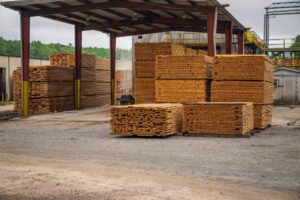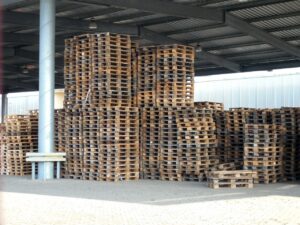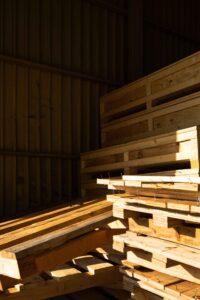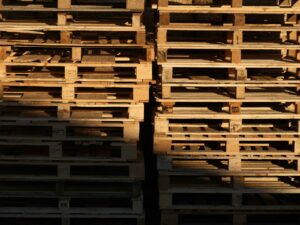1. Sustainability
Why It Matters: Bamboo is one of the fastest-growing plants on Earth, capable of growing up to 3 feet per day. It can be harvested within 3 to 5 years, compared to trees that take decades to mature. This rapid growth makes bamboo a highly renewable resource.
Impact: Choosing bamboo reduces deforestation and helps preserve forests, as it can be harvested repeatedly without killing the plant.
2. Eco-Friendly
Why It Matters: Bamboo is biodegradable, meaning it breaks down naturally without polluting the environment, unlike plastic, which can take hundreds of years to decompose. Bamboo also absorbs more carbon dioxide and produces more oxygen than an equivalent stand of trees.
Impact: Using bamboo products reduces the reliance on non-biodegradable materials, helping to lower environmental pollution.
3. Durability and Strength
Why It Matters: Bamboo has an impressive strength-to-weight ratio, making it stronger than many types of wood, steel, or concrete. Its tensile strength is comparable to steel, and it has a high compressive strength, making it ideal for construction and heavy-duty applications.
Impact: Bamboo structures and products are incredibly durable, with the ability to withstand heavy loads and last for years.
4. Versatility
Why It Matters: Bamboo can be used in a wide variety of applications, from construction and flooring to textiles, furniture, paper, and even food. Its flexibility makes it suitable for both structural and decorative uses.
Impact: The wide range of uses for bamboo means it can replace many traditional materials in different industries, from housing to everyday products.
5. Cost-Effectiveness
Why It Matters: Bamboo is often more affordable than traditional hardwoods or construction materials due to its rapid growth and abundance. Its low production cost makes bamboo products more accessible and affordable for consumers.
Impact: Using bamboo can reduce costs in construction, furniture production, and other industries while still providing a high-quality, durable material.
6. Low Environmental Impact
Why It Matters: Bamboo can grow without the need for pesticides or fertilizers, and it requires significantly less water than traditional crops or trees. Bamboo also helps prevent soil erosion due to its extensive root system, which holds the soil together.
Impact: Bamboo farming has a smaller environmental footprint than traditional timber harvesting or industrial agriculture, helping preserve ecosystems and biodiversity.
7. Regenerative Growth
Why It Matters: After harvesting, bamboo regenerates naturally without needing to be replanted. This self-regenerating property allows bamboo to be a more sustainable alternative to other materials that require replanting or re-sowing.
Impact: By choosing bamboo, you contribute to a farming cycle that is more sustainable and requires fewer resources over time.
8. Carbon Sequestration
Why It Matters: Bamboo forests are incredibly efficient at absorbing carbon dioxide from the atmosphere. Studies have shown that bamboo absorbs significantly more carbon dioxide and releases more oxygen than trees, making it a powerful tool in combating climate change.
Impact: Choosing bamboo helps reduce the carbon footprint of products and materials, contributing to global efforts to mitigate climate change.
9. Aesthetic Appeal
Why It Matters: Bamboo has a natural, organic look that is both elegant and modern. Its fine grain and light color give it a unique appearance that blends well in a variety of interior and exterior designs.
Impact: Bamboo’s aesthetic versatility makes it a popular choice for sustainable home décor, flooring, and furniture, enhancing the visual appeal of living spaces.
10. Health Benefits
Why It Matters: Bamboo naturally resists moisture, mold, and insects, making it a healthier material for products like kitchenware, flooring, and textiles. Bamboo fibers are also hypoallergenic and antibacterial, making them safe for sensitive skin.
Impact: Using bamboo in your home can improve indoor air quality, reduce exposure to allergens, and create a healthier living environment, especially for those with allergies or respiratory issues. It can be harvested within 3 to 5 years, compared to trees that take decades to mature. This rapid growth makes bamboo a highly renewable resource.
Impact: Choosing bamboo reduces deforestation and helps preserve forests, as it can be harvested repeatedly without killing the plant.






